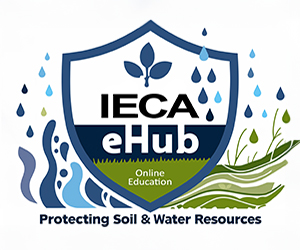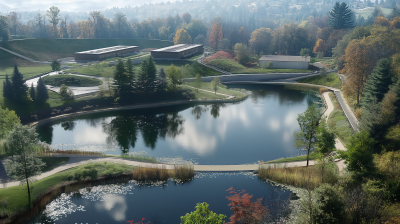
Bioengineering and Biotechnical Soil Stabilization
-
Register
- Non member - $50
- Professional member - $25
- Professional Plus member - $25
- Professional Plus Org member - $25
- Student member - $25
- Young Professional member - $25
- Emeritus member - $25
- Discounted Professional member - $25
- Australia Member - $25
- Australia Non-Member - $50
- Australasia Professional Plus - $25
Bioengineering and Biotechnical Soil Stabilization

Presented by: John A. McCullah, Instructor | Shasta College
Level: Intermediate
Duration: 1 hour
Type of Course: On-Demand
This online course condenses nearly 20 years of authors’ experience into1 hour. The course includes fascinating facts about the history of bioengineering in the West. Where did the term “Straw Wattle” originate? Answers to the question about “design life” of biotechnical methods lie in understanding successional reclamation? Plus, this course will offer 4 of the most useful willow methods. For novices to experts, this course is a must for those interested in Bioengineering (AKA – Biotechnical Soil Stabilization). Understand the guiding principles behind the Biotechnical techniques, the geotechnical benefits, the history, and the many important details necessary for a successful project. Designers and implementers will improve your success. The techniques covered are applicable to both river and upland settings. Learn from past projects, proffered with the benefit of time and presented in straightforward manner.
Learning Objectives:
- Identify and summarize the concepts of Bioengineering.
- Summarize the history of Bioengineering.
- Explain the geotechnical, aesthetic and sustainable nature of the Bioengineering approach.
- Define the four fundamental and cost-effective methods for implementing willow cutting.
- Understand how the number bioengineering and biotechnical methods are very diverse – some are applicable for riparian zones and some are useful upland areas.
Course Last Reviewed: June 2024

John A. McCullah
John McCullah has an AA degree in Biology and a BS in Watershed Geology. He has CA contractors license since 1990 and has been performing erosion control and restoration work for over 25 years. John has been a Certified Community College Instructor since 1996, developing curriculum and teaching at Shasta College in No. California. John is a recognized expert in erosion control, stream and watershed restoration, and technical training.
He has had specialized adult educator training while teaching state-wide storm water courses for California Department of Transportation - from 2001 through 2011. John is also certified as a QSD and QSP (Qualified SWPPP Developer and Practitioner) and he is a Trainer of Record for these CA professional requirements. He has authored 3 complete Best Management Practice Manuals and helped develop new BMPs with California Department of Transportation Division of Landscape Architecture, particularly Steep and Adverse Slopes. John has been teaching professional development courses for IECA since 1996. His popular ‘Best of the BMPs’ course is constantly being updated to reflect new technology, materials, and practices. The Dirt Time video series was produced as a means to present hands on learning experiences to the classroom. There are now over 15 Dirt Time episodes and 50 video clips available.
John has designed and built many environmentally-sensitive river and stream projects over the last years, projects ranging from California to Alaska, and Alberta Canada to New Zealand. As an academic and practitioner with dozens of case studies and Dirt Time clips, John’s trainings are filled with first hand, practical experiences. He recently co-authored Bioengineering Case Studies - Sustainable Stream Bank and Slope Stabilization published in 2015 by Springer.
At the completion of this course you will receive 1 Professional Development Hour of credit. For any questions on continuing education credit, please contact IECA Education at education@ieca.org



